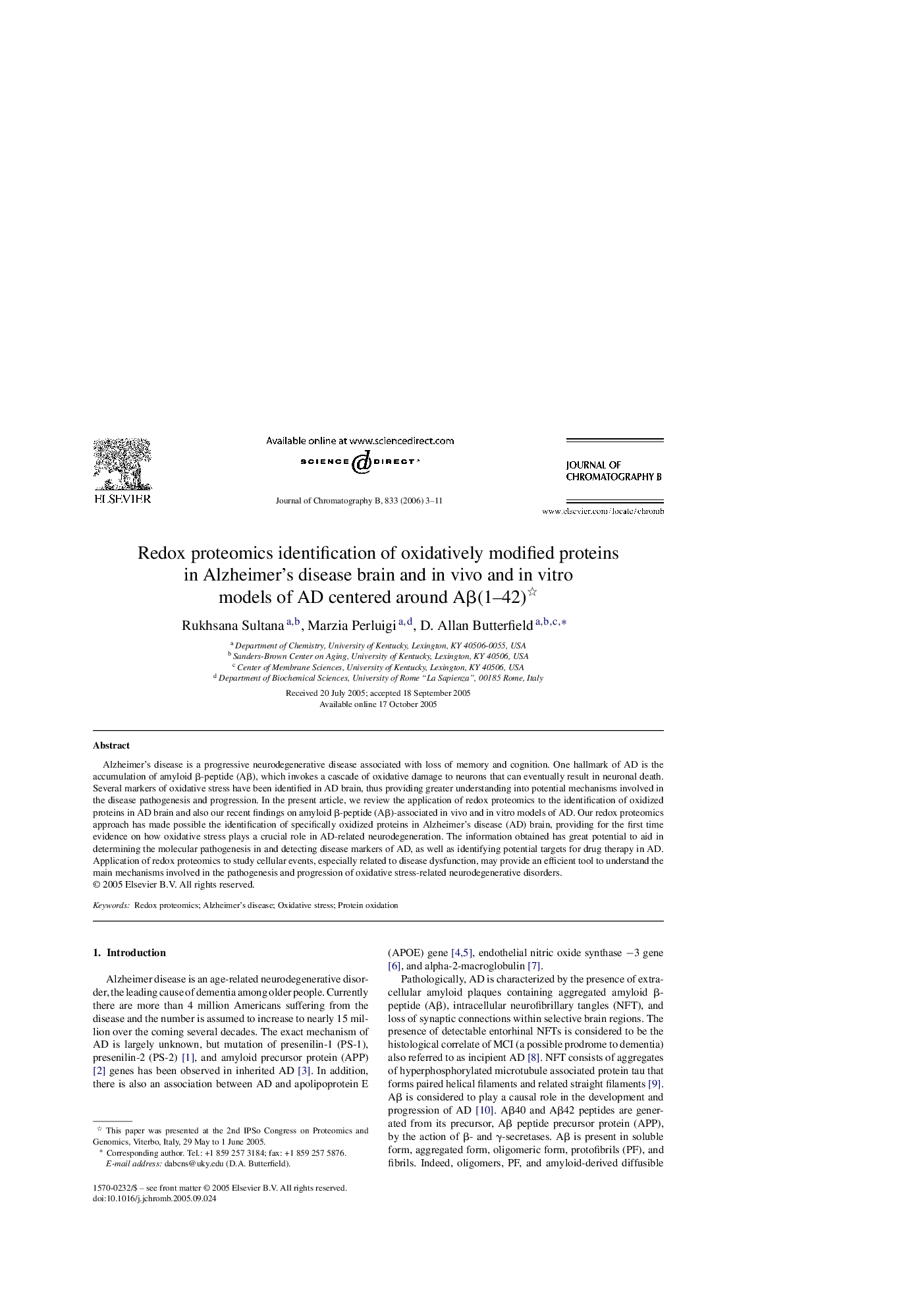| Article ID | Journal | Published Year | Pages | File Type |
|---|---|---|---|---|
| 1217403 | Journal of Chromatography B | 2006 | 9 Pages |
Alzheimer's disease is a progressive neurodegenerative disease associated with loss of memory and cognition. One hallmark of AD is the accumulation of amyloid β-peptide (Aβ), which invokes a cascade of oxidative damage to neurons that can eventually result in neuronal death. Several markers of oxidative stress have been identified in AD brain, thus providing greater understanding into potential mechanisms involved in the disease pathogenesis and progression. In the present article, we review the application of redox proteomics to the identification of oxidized proteins in AD brain and also our recent findings on amyloid β-peptide (Aβ)-associated in vivo and in vitro models of AD. Our redox proteomics approach has made possible the identification of specifically oxidized proteins in Alzheimer's disease (AD) brain, providing for the first time evidence on how oxidative stress plays a crucial role in AD-related neurodegeneration. The information obtained has great potential to aid in determining the molecular pathogenesis in and detecting disease markers of AD, as well as identifying potential targets for drug therapy in AD. Application of redox proteomics to study cellular events, especially related to disease dysfunction, may provide an efficient tool to understand the main mechanisms involved in the pathogenesis and progression of oxidative stress-related neurodegenerative disorders.
